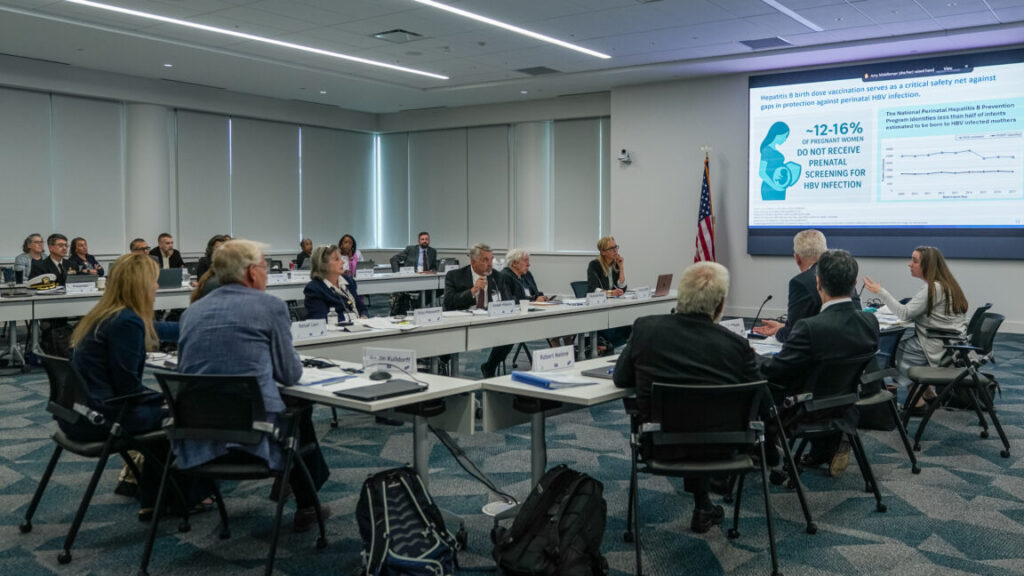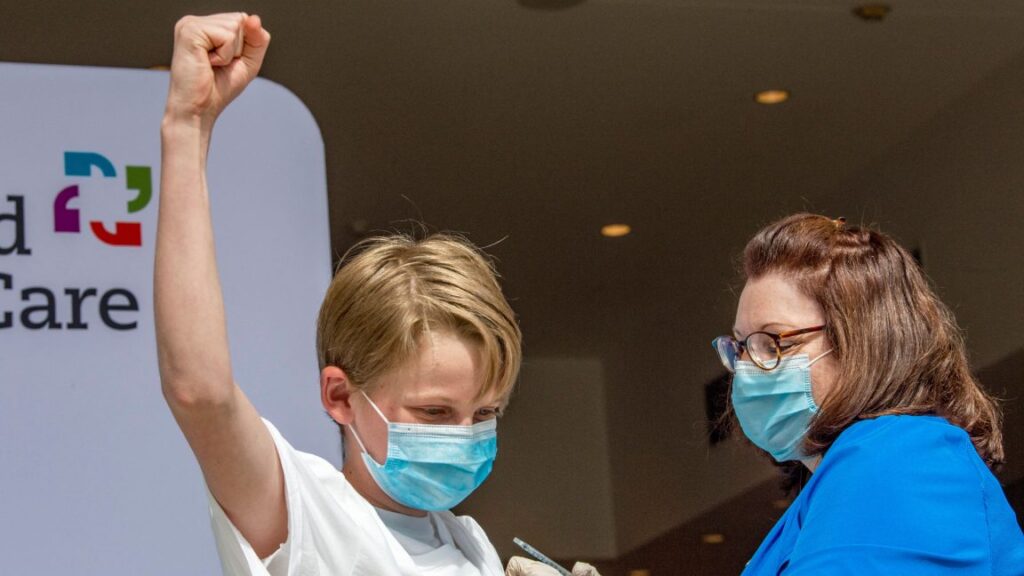As shutdown ends, dubious CDC panel gets back to dismantling vaccine schedule
Nevertheless, Kennedy’s ACIP members planned to push the first dose back a month. A vote was prepared to recommend not giving a birth dose unless there was “individual based decision-making.” While at first the panel seemed poised to vote in favor of the change, the plan collapsed with basic questioning.
Voting ACIP member Joseph Hibbeln, a psychiatrist, noted: “I’m unclear if we’ve been presented with any safety or data comparing before one month to after one month,” he said. They had not.
“And,” Hibbeln continued, “I’m wondering why one month was selected as our time point and if there are data to help to inform us if there’s greater risk of adverse effects before one month or after one month at all.”
There is no data suggesting that such a move would be more or less safe.
The discussion quickly spiraled from there with an eventual vote of 11-1 to table voting on the vaccine recommendation. According to the Federal Register notice, ACIP will try to take up the topic again. They could revive the vote or attack some other aspect of vaccine recommendations.
Pediatricians fight back
Health experts have blasted Kennedy’s lineup and their attacks on childhood vaccines, including the hepatitis B vaccination schedule. The current schedule “remains the best protection against serious health problems like liver disease and cancer,” the American Academy of Pediatrics emphasized to Ars.
With ACIP’s standing tarnished under Kennedy, AAP has put forth its own evidence-based vaccine schedule for pediatricians to trust. They’ve also been a prominent opponent among medical organizations to Kennedy’s efforts. For instance, in a revised federal lawsuit, the AAP along with other medical organizations is seeking to overturn all decisions made by Kennedy’s ACIP and replace the entire panel with actual experts.
Kennedy’s appointees “lack the credentials and experience required of their role,” and all their votes should be declared “null and void,” the organization said.
AAP President Susan Kressly said that pediatricians are already seeing the effects of having an anti-vaccine activist as the US health secretary, namely “fear, decreased vaccine confidence, and barriers for families to access vaccines.”
“The nation’s children are already paying the price in avoidable illnesses and hospitalizations,” Kressly said. “We urge federal leaders to restore the science-based deliberative process that has made the United States a global leader in public health. Urgent action is needed.”
As shutdown ends, dubious CDC panel gets back to dismantling vaccine schedule Read More »

